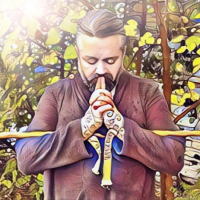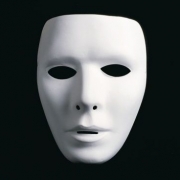- Posts: 2676
Honor and redemption
A question --
Can "honor" (in the traditional sense), once lost, be redeemed?
Do enough good deeds make up for past misdeeds?
Or is it that no manner of atonement will change the past?
Please Log in to join the conversation.
rugadd
Please Log in to join the conversation.
- Breeze el Tierno
-

- Offline
- User
-

- Posts: 3208
But also figure there will be a lag between one's honor and one's reputation.
I know the two are often equated.
Please Log in to join the conversation.
I say that because I think when reading and writing became more widespread, humanity got a better grip on the temporal dimension. With record keeping we probably all developed a better appreciation for the value of 'moments' where they sit in that temporal frame. Prior to this everyone probably had to rely on a present moment subjective viewpoint of a thing, to determine ones relationship to it since details of the past blur and get mixed up. So concepts like honor in that sense have probably been replaced by better understanding events in their historical contexts, and so to behaviours participants might exhibit can become more dependent on the circumstances of that time and place rather then defining some static attribute of 'character'. Humanities tools often have enabled that capacity to abstract concepts into more meaningful and useful ways to relate to the world.
So that said; A. yes because its an invented concept anyway, B. same answer as A., C. see above, bad memories can be forgotten most entirely given enough time if replaced by good memories which are reinforced enough, IMO.
Please Log in to join the conversation.
Mindas Arran wrote: Good evening,
A question --
Can "honor" (in the traditional sense), once lost, be redeemed?
Do enough good deeds make up for past misdeeds?
Or is it that no manner of atonement will change the past?
No manner of atonement will change the past unless you have a time machine, i just read the book of Samurai and the reason they topped themselfes for the smallest act of dishonour was because they did not have the ability to get over themselfes , take the shame and learn from it , instead of that the killed themselfes and therefore did not have to learn the lessons that shaming you and your family can give you in life. We all are human ,we all make mistakes that effect our surroundings even if we dont think so. You can be mindfull, caring and loving and a great warrior , but when you bring shame to the community nobody will see this at first , their focus will be on your shame. Now there is a chance to redeeme yourself or commit "suicide" by not changing your demaenor and behaviour.
Do enough good deeds make up for past misdeeds? I hope so , but i also know it depends on the deeds , you would be surprised what people remember. I only know that if you brought dishonour you have choice to be a good person for the rest of your time and to be of service , that is your choice. If you choose that you are doing the right thing.
If you get to hung up over what other people think of you maybe you should get over that first and tell yourself "I have done wrong , i will do everything in my power to set this right"
Please Log in to join the conversation.
- Cyan Sarden
-

- Offline
- Banned
-

- Posts: 1218
MartaLina wrote: Do enough good deeds make up for past misdeeds? I hope so , but i also know it depends on the deeds , you would be surprised what people remember.
Unfortunately, individuals seem to hold grudged against other individuals (even for small trespasses) much longer than what seems to be the case with those who actually mess up dramatically or are evil to the bone. I've never quite understood how Arafat, for example, who was directly and indirectly involved in numerous terrorist killings in the 70s and 80s somehow managed to get the Nobel Peace Prize, or how former dictators are re-elected after a democratization process in Eastern European countries. But your neighbor who's cat pooped in your raspberries? Shunned for life.
Do not look for happiness outside yourself. The awakened seek happiness inside.
Please Log in to join the conversation.
It's really easy to take the Jedi stance and be the bigger person, forgive others, and expect others will reciprocate. A person has the capacity to change, but people aren't so trustworthy or trusting.Mindas Arran wrote: Good evening,
A question --
Can "honor" (in the traditional sense), once lost, be redeemed?
Do enough good deeds make up for past misdeeds?
Or is it that no manner of atonement will change the past?
While honor and actions aren't necessarily the same, you can't have one without the other.
A common statistic I learned from a professor was that people on average will need 10 good things to balance out 1 bad experience.
I'm not sure of the nature of your transgress, but the fact that you're seeking atonement means you're on the right path. Humility is the key.
Knights Secretary's Secretary
Apprentices: Vandrar
TM: Carlos Martinez
"A serious and good philosophical work could be written consisting entirely of jokes" - Wittgenstein
Please Log in to join the conversation.
I would be surprised to hear Mindas was looking for atonement.Rex wrote:
It's really easy to take the Jedi stance and be the bigger person, forgive others, and expect others will reciprocate. A person has the capacity to change, but people aren't so trustworthy or trusting.Mindas Arran wrote: Good evening,
A question --
Can "honor" (in the traditional sense), once lost, be redeemed?
Do enough good deeds make up for past misdeeds?
Or is it that no manner of atonement will change the past?
While honor and actions aren't necessarily the same, you can't have one without the other.
A common statistic I learned from a professor was that people on average will need 10 good things to balance out 1 bad experience.
I'm not sure of the nature of your transgress, but the fact that you're seeking atonement means you're on the right path. Humility is the key.
rugadd
Please Log in to join the conversation.
Better to leave questions unanswered than answers unquestioned
Please Log in to join the conversation.
I heard an analogy once for how individuals represent the whole group that I think I can adapt to this situation.
If a person only sees you (general you, not specific to anyone) do one thing and that thing is dishonorable then 100% of their interaction with you is dishonorable. If you do one honorable action then you are 50% honorable in their eyes (assuming the actions are of equal value but for the sake of the math let's assume all actions are equal). 50% is not good when it comes to being honorable. If you do one more honorable thing then you're 66% honorable. That's better but still not great. Now assume you do another dishonorable thing, now you're back to 50%. If you had started with an honorable action you would have started out 100% honorable and therefore the last dishonorable action would only bring you down to 75%.
This is, of course, a gross over simplification, but I think it still makes a little sense.
Regardless of the total number, the most important thing to me is the most recent few. I want to see enough to see a pattern of change. It's easier to be forgiving of mistakes the further in the past they are and the more good that has been done since the last bad.
Please Log in to join the conversation.
